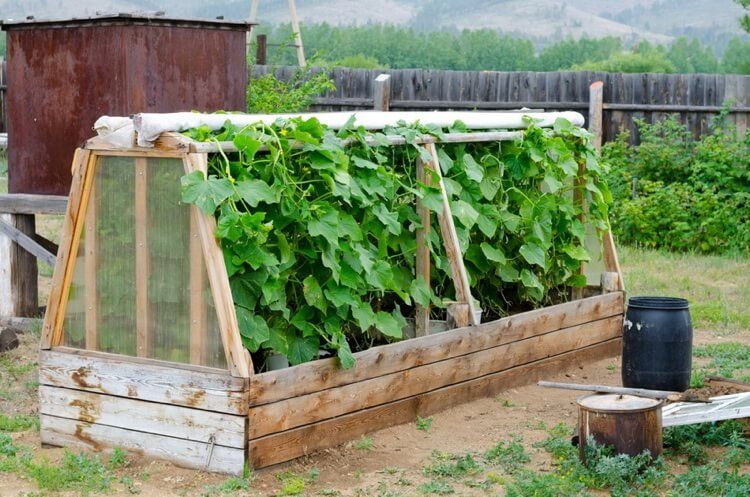How to make a garden greenhouse to protect plants? DIY ideas with DIY instructions
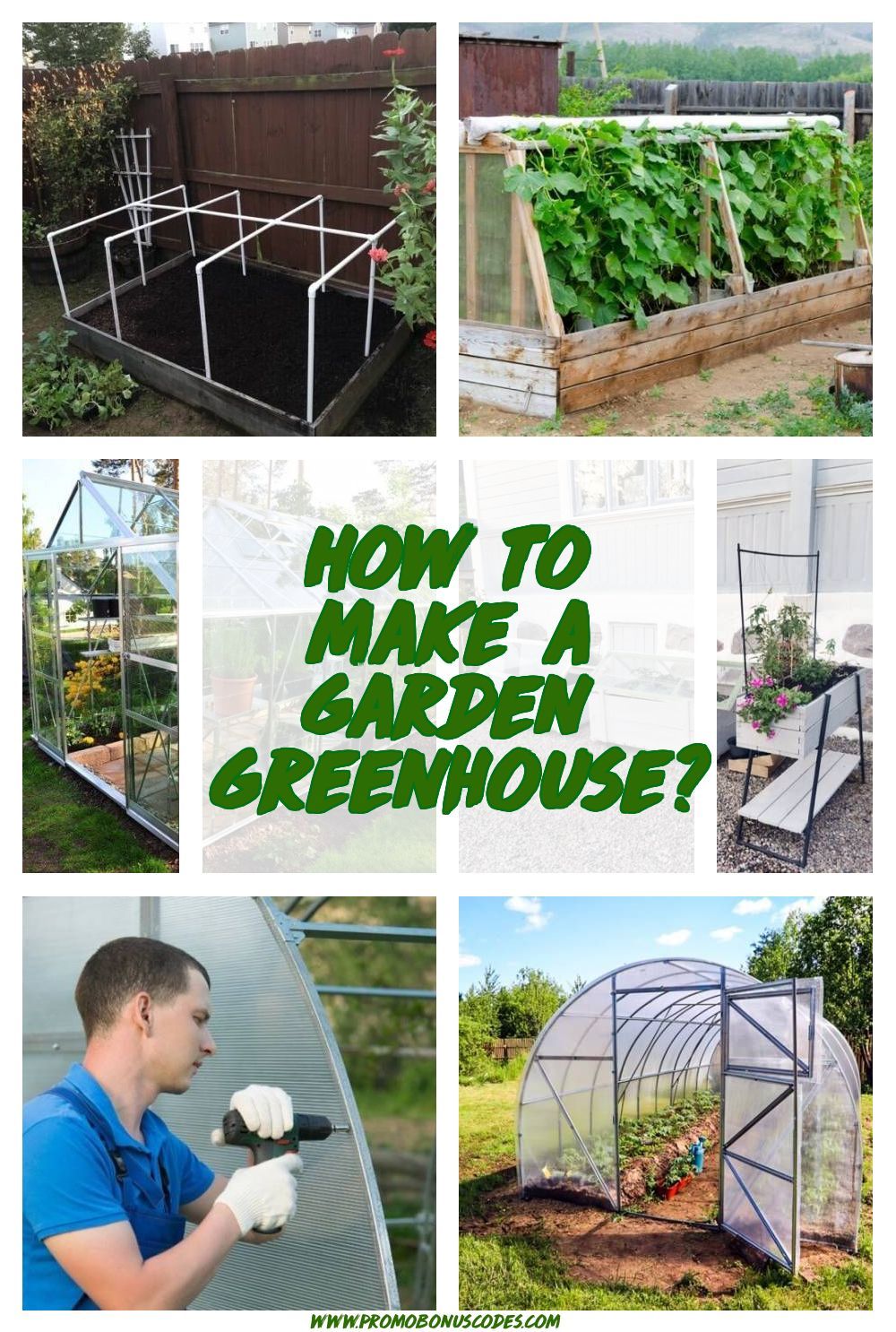
A gardener at heart, do you love growing your own salads, vegetables, and herbs? Experience has probably taught you that, before harvesting your first harvests, it is necessary to grow your plants, provide them with the necessary care and protect them from pests and bad weather. Alas, making stakes for your tomatoes and concocting natural fertilizers would be unnecessary gestures if your dear plants are burning with frost. It is, therefore, necessary to make a garden greenhouse that will keep them sheltered from the cold, strong winds, and hail. This article offers you several ideas for garden greenhouses and cold frames to make yourself pamper your plants.
What to consider before you start making a garden greenhouse
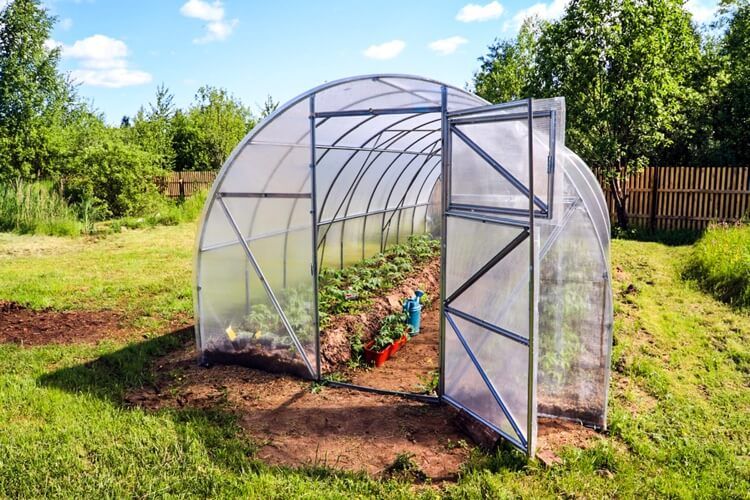
- Think about the type of structure that suits you: freestanding or lean-to. Free-standing greenhouses offer much more flexibility in design and space, unlike wall-mounted greenhouses. On the other hand, the adjoining structures benefit from shared heating and a lower construction cost.
- The Guidance: Make sure you build your garden greenhouse on land that receives as many hours of sunlight during the day as possible. South or south-east orientation is ideal.
- Framing materials: wood and metal are the two most common materials used by greenhouse builders. Each water has its advantages and weaknesses. Wood is cheaper and easier to work with, but it is more likely to wear out under the influence of harsh climates. Metal, on the other hand, tends to be more expensive but more durable over time.
- Coating / glazing variants: there is a wide variety of materials to choose from, from plastic to glass:
– Affordable options: polyethylene sheets are easily damaged and require replacement; acrylic sheets provide good light diffusion, good insulation, and excellent durability.
– Expensive options: 3-layer polycarbonate sheets are durable but expensive;Â glass is generally used for its aesthetic effect, but it is difficult to install. - Allow some space for extension: Plants you grow in a garden greenhouse will grow quickly and are most likely to require additional area. Keep this in mind when considering your project – consider potential areas that areas could expand in the future.
How to make an acrylic glass garden greenhouse?
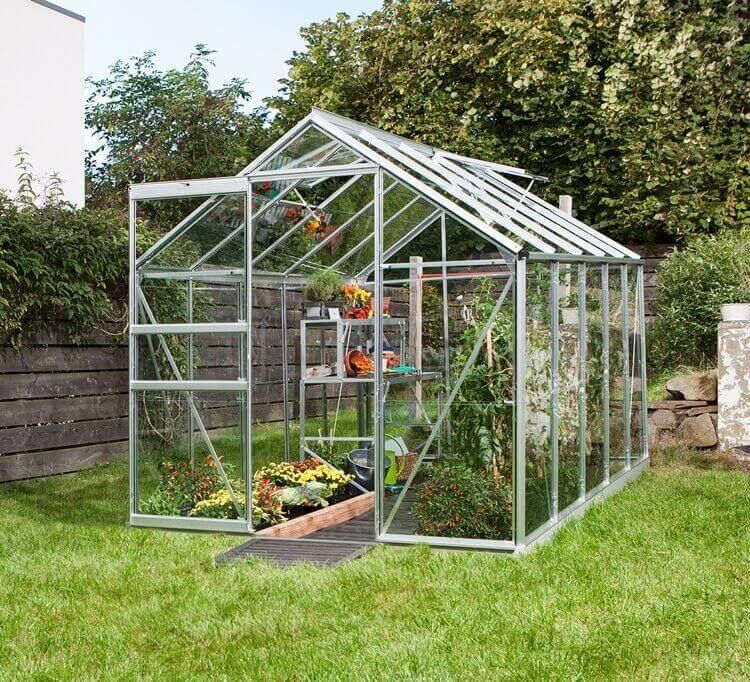
Obviously, your garden greenhouse needs a sunny spot. However, you must also take into account the impact of wind gusts on the structure. Take into consideration that a greenhouse has a large vertical area and that acrylic glass sheets are relatively light. This means that even a light breeze could prove to be a heavy load on your structure. So when you install it in a windy area, make sure to anchor it firmly. Remember that a solid foundation is always paramount.
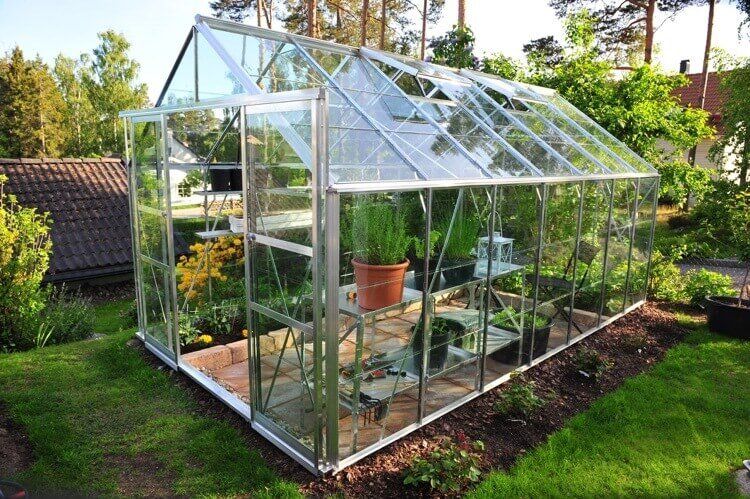
The dimensions of your garden greenhouse depend on the land available, as well as the size of the acrylic sheets used. Most greenhouses have a ridge height of 250 to 280 cm. Its vertical side is normally at least 2 meters high. You have the freedom to choose the dimensions of the short wall. For example, you can divide an acrylic glass plate into smaller plates that are 75cm wide.
Necessary tools :
The frame: wood or metal components
The hardware: you will need nuts, screws, bolts, and fixing brackets
The coating / glazing: to make a garden greenhouse yourself, we strongly recommend the Plexiglas sheets
Des heating, cooling, and ventilation systems
Foundations: wooden planks, poured concrete, gravel, or bricks
1 tape measure
Leveling tools
1 drill /
driver
1 screwdriver 1 hammer
1 circular saw Safety
glasses
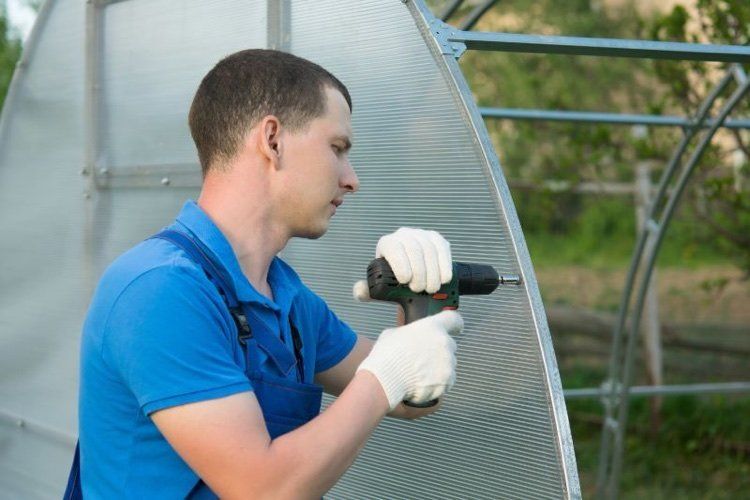
ĞÂ
- Outline your garden greenhouse on the ground.
- Set up the foundations of the structure following the contours. Use your leveling tools to make sure the surface (whether wood or concrete) is level.
- Install the frame using wood planks or metal parts. Use the saw to cut the framing members to the appropriate lengths and secure them in place using bolts, nuts, and mounting brackets.
- Once the frame is in place, you can finally start covering it. Start from the sides, then go to the roof. Make sure every inch is well covered – you don’t want openings through which rainwater or cold air could seep through.
- Inside the greenhouse, install the heating, cooling, and ventilation systems. These will help to modify the climate according to the needs of your plants.
- It would be wise to acclimatize your plants little by little to their new environment. Do not bring them in just before the rainy or freezing season. This could cause shock to your plants.
ĞÂ
Make a small garden greenhouse with a removable cover to protect your plants.
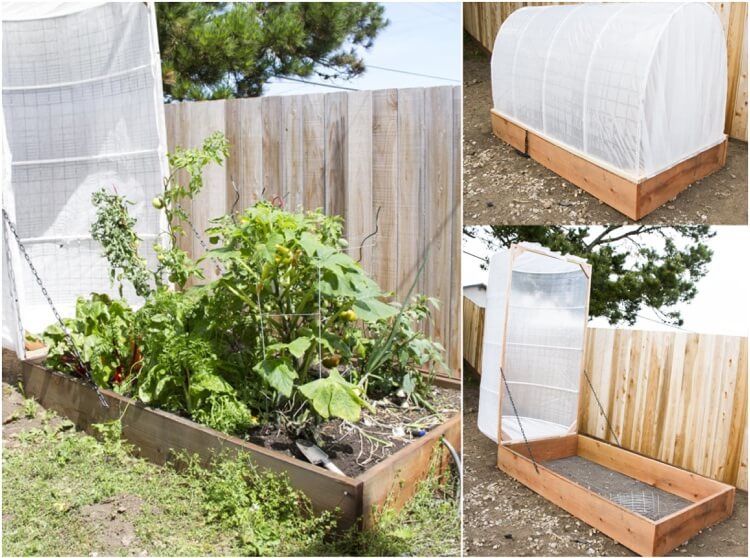
You need :
For the box: 2 ? 12 redwood planks, cut into desired lengths
For the lid frame: 2 ? 2 redwood planks, cut in length necessary to match the dimensions of the raised bed
To reinforce the corners: planks redwood 2×4
Coated wood screws to resist the elements
PVC drain pipes Pipe
clamps
Large mesh metal
netting Backyard
netting Nylon cable ties for securing the netting to PVC pipes
A plastic sheet
1 stapler
2 hinges
2 eyebolts to screw
180 cm wide chain, cut in 2
1 miter saw
1 drill
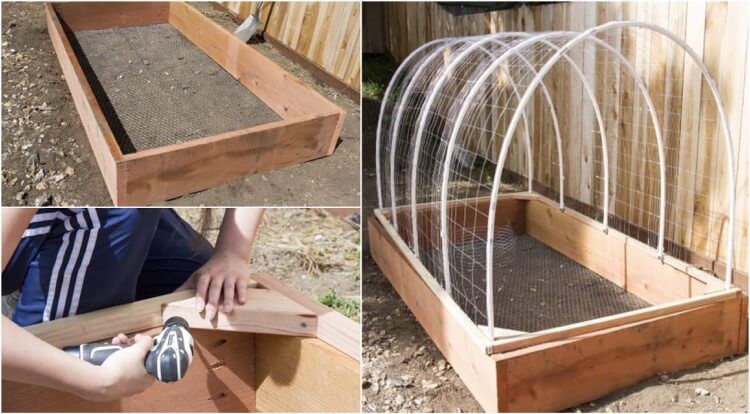
ĞÂ
- Make the tray by assembling the 2 ? 12 boards flat-seamed. Use the stapler to secure the backyard mesh to the âbottomâ of the container to protect your plants from moles and small rodents that dig into the soil.
- Proceed to the manufacture of the cover frame. To do this, you have to use the 2 ? 2 boards. The frame should be the same length and width as the box you just built. To strengthen the corners, use 2 ? 4 boards.
- Bend the PVC pipes so that they create arches. Secure the ends to the frame using the clamps. Tip: Drive a screw directly through the pipe into the frame to prevent it from slipping out of the clamp.
- Cover the arches with large mesh metal mesh and secure them in place with cable ties, wire, or electrical tape. This will further strengthen the structure.
- Staple a large plastic tarp or fabric to all sides of the frame.
- Determine the place to mount the hinges. Make sure you have easy access to your plants when the lid is open. Screw the eyebolts on both sides of the box and the frame perpendicularly, and hook the chains.
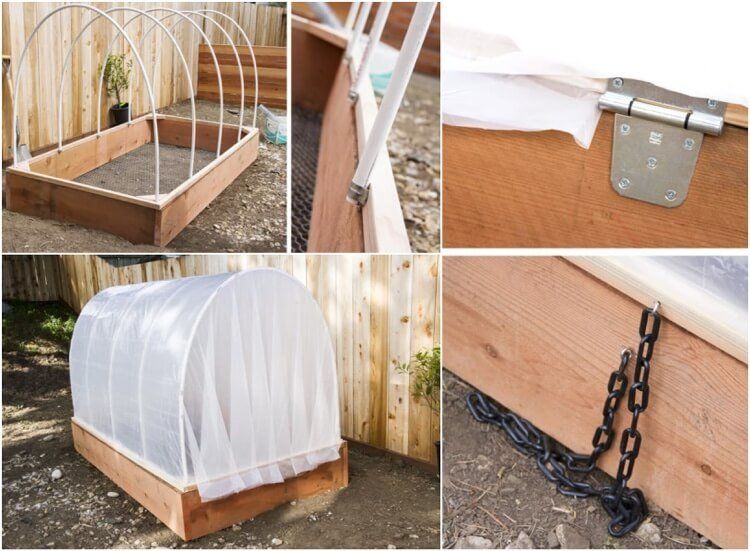
Make a cold frame to protect the young plants.
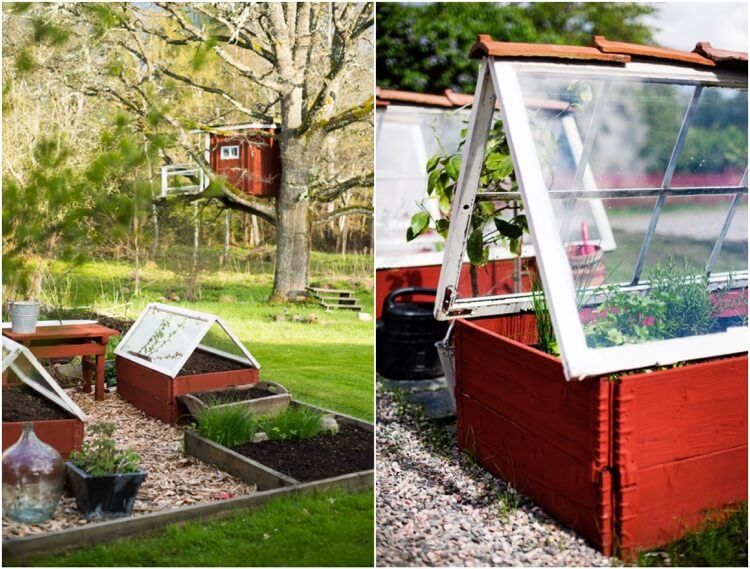
In spring and late autumn, when climatic fluctuations are frequent, it is very important to protect young plants or some of the plants whose harvest you want to prolong. If you do not have a garden greenhouse, as an alternative, you can use a cold frame. This structure plays almost the same role as a tunnel, but it is not heated. That said, in times of severe frost, it is recommended to protect your plants with fabric, an old blanket, cardboard boxes, etc. The same logic applies in periods of the strong sun: it is imperative to open your cold frame. Otherwise, you risk that your plants will burn. Making a cold frame is an easy project that allows you to use different materials you already have. Among the most practical and original ideas, it is to build a frame with old windows. These are attached to wooden frames using hinges. Thus, the glass top can be opened and folded down very easily.
How to turn the raised vegetable patch into a practical cold frame?
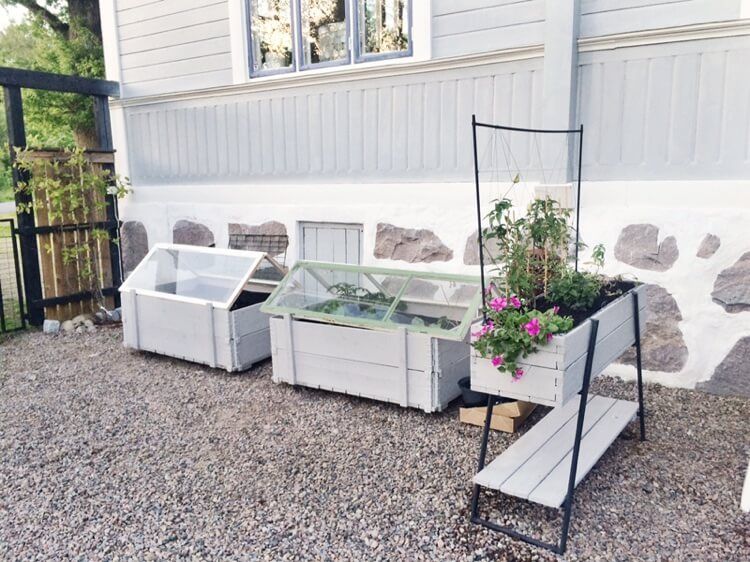
The following DIY project is particularly easy to complete and requires only a few basic DIY skills. If you want to enjoy your vegetable garden as long as possible and continue to grow your salads and certain vegetables even when it is cold, the solution is to make a cold frame. Don’t panic. The idea that we are presenting to you is not complicated! Just get creative by turning your raised vegetable plots into practical and unusual greenhouses that will keep your plants safe from adverse weather conditions. You can use old windows or re-use the glass part of an old door.
A DIY garden greenhouse made from PVC pipes
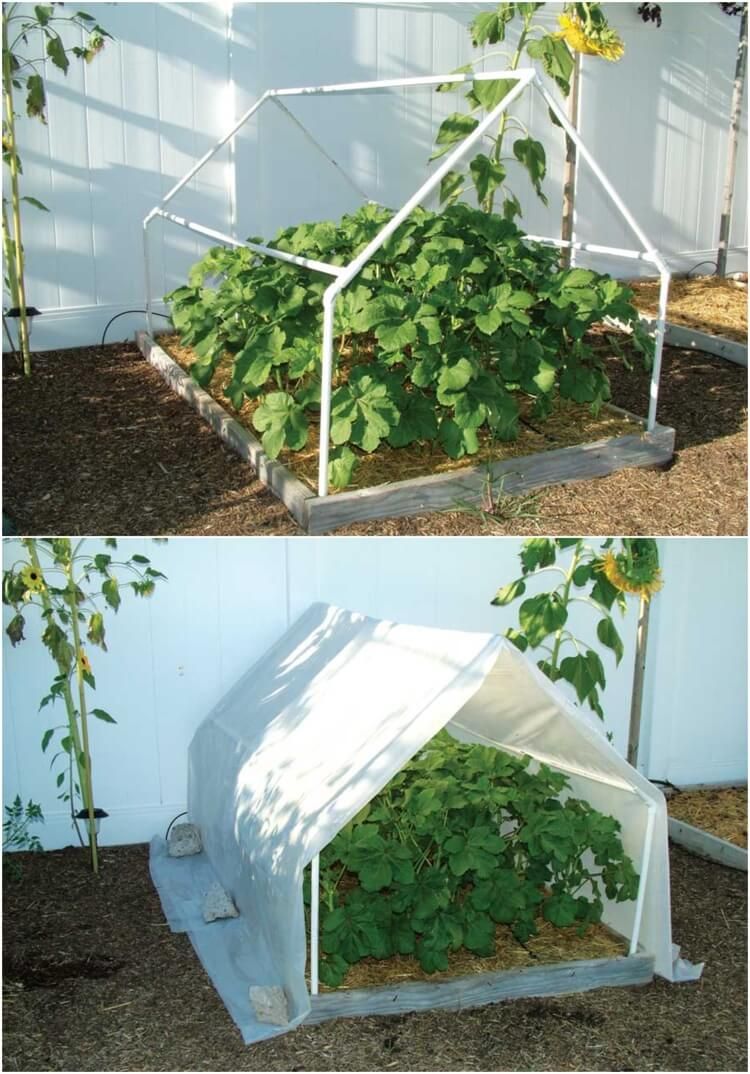
With the help of PVC pipes and connectors, you can make an original and, above all, useful small garden greenhouse. This compact model is ideal for small gardens, but it is still possible to make a more imposing structure. First, build the base of your greenhouse. This could be made of wooden or other pallet planks. Once the base is in place, it’s the turn to create the frame. To do this, measure the length and width of the base to determine the dimensions of the pipes needed. Cut the pipes and assemble them using the connectors. Push the structure directly into the ground and cover it with a tarp or fabric.
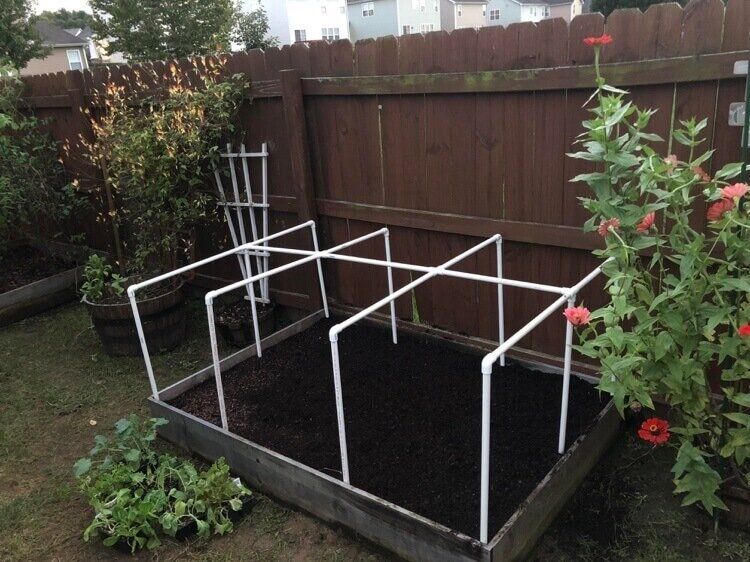
This idea is similar to the previous one. The difference is in the design of the structure, which is, in this case, rectangular. All that remains is to plant the plants and cover the frame with a tarpaulin.
Finally, an idea for a homemade wooden garden greenhouse.
